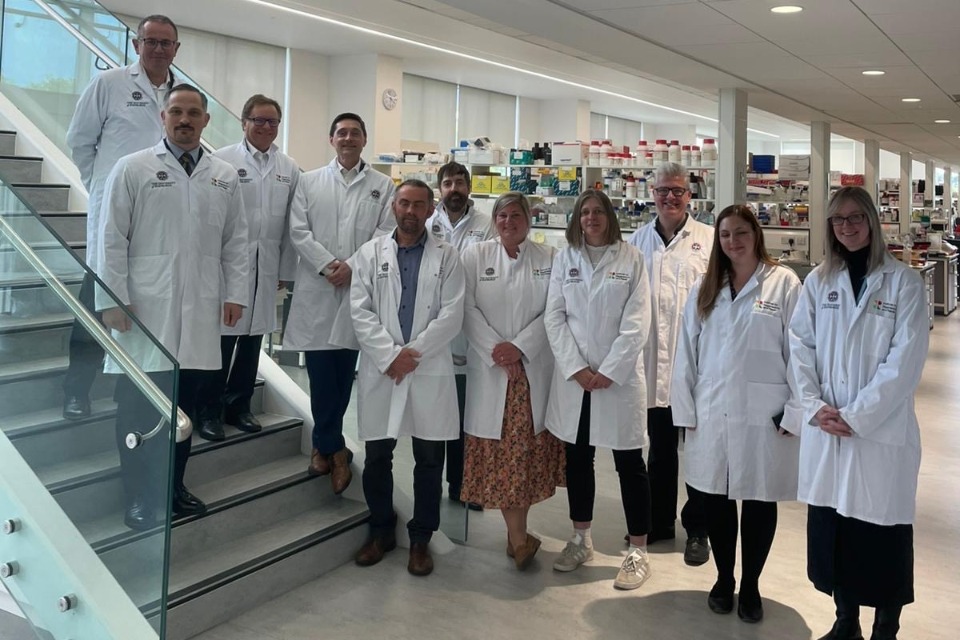The meeting, which took place at the Royal College of Surgeons in Edinburgh, centred on the MHRA's commitment to delivering the agency's priorities in Scotland
The Board of the Medicines and Healthcare products Regulatory Agency (MHRA) has met in Scotland for the first time ever, reinforcing the agency's commitment to delivering its health and innovation priorities across the UK.
The meeting took place at the Royal College of Surgeons in Edinburgh, which is the oldest surgical college in the world.
Alongside the MHRA's new CEO Lawrence Tallon, MHRA Chair Professor Anthony Harnden and the board members, the meeting was attended by a number of important Scottish representatives from healthcare and government, including Chief Pharmaceutical Officer Alison Strath and Head of the Chief Medical Officer's Policy Division Greig Chalmers.
The discussions centred on the MHRA's commitment to delivering the agency's priorities in Scotland and served as an opportunity for the MHRA to listen to the experiences and ideas of those in attendance.

Tour of the Institute of Regeneration and Repair with hosts and Usher Institute staff
The MHRA Board was one of several engagements between leading MHRA officials and Scottish representatives across the country as part of the trip, including with the Director of the University of Edinburgh's Usher Institute Professor Cathie Sudlow, NHS Lothian Research and Development Director Professor Alasdair Gray, and officials from DataLoch and Research Data Scotland.
MHRA Chair, Professor Anthony Harnden, said:
This isn't just a change of location - it's a meaningful step in our commitment to being a truly national regulator.
The MHRA's work serves the whole of the UK, and that means we must spend time in every part of it, listening, learning, and building partnerships rooted in mutual respect and shared ambition.
MHRA Chief Executive, Lawrence Tallon, said:
It is absolutely vital that the voices of all four nations and regional partners are involved in discussions about the MHRA's strategic direction.
Strong regional and national engagement helps ensure that the work the MHRA does to protect public health, drive innovation and boost growth serves not just England but the whole of the UK.
This isn't a 'one-off', it's a step change. I look forward to meeting other regional partners in due course.
The board meeting fell on International Clinical Trials Day and is another example of how the MHRA is driving forward innovation and growth throughout the UK.
Notes:
- The Medicines and Healthcare products Regulatory Agency (MHRA) is responsible for regulating all medicines and medical devices in the UK by ensuring they work and are acceptably safe. All our work is underpinned by robust and fact-based judgements to ensure that the benefits justify any risks.
- The MHRA is an executive agency of the Department of Health and Social Care.






